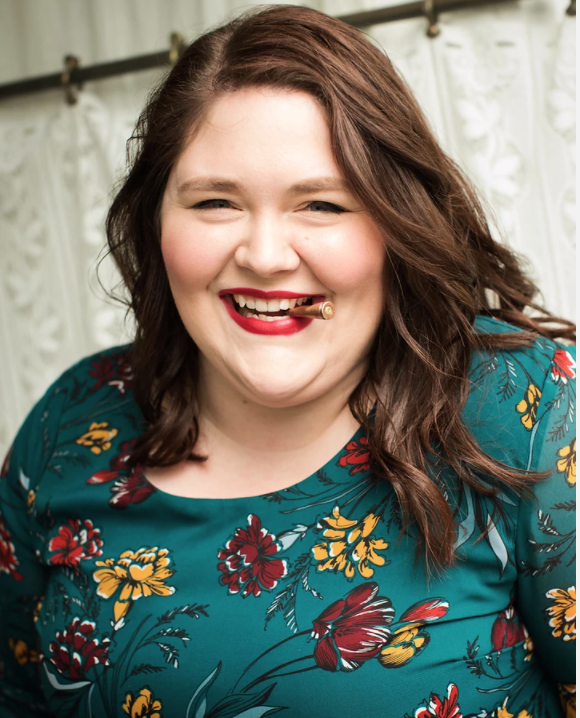Jesi Leigh
I spent my teen years and subsequent early college years feeling like an utter failure. “You’re wasting your potential!” the teachers would cry. “Why can’t you just do what you’re supposed to do?!” My mother would plead.
I could write a hell of a paper and test well, so my grades were mostly decent despite my perpetually forgotten homework and last-minute assignments. I took my ACT after an all-nighter on the internet because I’d forgotten the date for the test. No calculator because I didn’t remember to grab one. If high school was hard, adulthood hit me like a freight train.
Late fees piled up on my bills as I got older because nobody reminded me to pay them. My credit score tanked. I’d buy planners and fancy apps, determined to “get my life together” only to spiral into misery and overwhelm weeks later, expensive planner empty on the table under the piles of red shut-off notices for my utilities. I’d sleep until late afternoon and wallow in my filthy bedroom with no inclination to clean it up or take care of myself.
Over and over again I’d wonder what was wrong with me. Why am I so incapable of managing these expectations and tasks that every other person has under control? At my darkest point, this feeling of failure and worthlessness consumed me and a little voice in my head asked me as I drove across the river to work every morning “Why are you still here? You could turn that steering wheel just once and it could all be over if you wanted it to. You’re just a waste of space anyway.”
It wasn’t until I was pregnant with my daughter and in the emergency room for the never-ending panic-attacks that plagued me that I got my first diagnosis: general anxiety disorder and depression.
After she was born, things felt okay for a while. My mental health had never been better. Looking back it’s almost like I had the opposite of postpartum depression. But as I went back to work and then school, the juggling act fell apart over and over and over again. I’d sob to my husband about what a failure I was. That I was a terrible mom. A terrible wife. A terrible teacher. A terrible student. I couldn’t keep my house clean or get my homework done on time. I’d forget the doctor’s appointments for my baby and lose things at every turn.
Friends here and there would suggest medications and therapists but I’d ignore the advice or put it off as usual. That was a “someday” problem to fix and I had a laundry list of last week’s problems I still hadn’t addressed. Besides, everyone always said that maybe if I would lose weight or eat more natural foods or exercise more I wouldn’t feel like this. I didn’t need medication or therapy, I needed to stop being so damn lazy.
My daughter was four when I finally gave in and scheduled a therapy appointment. At that point it had been a vicious fifteen year cycle of treading water until I started to drown and someone had to save me. Fifteen years of failing to get a grip on my life. We spent the first visit going over possible diagnoses. Possible labels for what was wrong with me. Anxiety and depression were a given. She agreed immediately with those ones.
But then came the page in the book that listed every single problem I had struggled with for my entire life. Distraction, inability to focus, forgetfulness, procrastination, impulsivity, poor decisions about money, interrupting people when they talk–the list went on. With every check-mark, I could feel something inside me begin to shift. My eyes filled with tears because, for the first time in my entire life, I felt understood. For the first time in my life, I didn’t feel like a failure.
With the final symptom checked off the list, the therapist looked at me and nodded as she said “Attention Deficit Hyperactivity Disorder. Have you ever been on meds for any of this stuff?”
“I really don’t want to do any medications,” I replied. “Everyone always says you should do natural things and avoid medications.” She shrugged and told me that if I changed my mind I should let my doctor know.
Labels can be such a scary thing when it comes to your health. People avoid them or whisper their diagnoses like the very word is a scarlet letter across their chest or a ball and chain they have to drag with them for the rest of their lives, weighing them down. But for me, they came as answers to questions that had plagued me for years. It was nice to hear someone say there was a cause for all of these problems in my life and it wasn’t just me sucking at being an adult. But still, nothing was getting better.
It was another year before I finally spoke with my doctor about needing help with putting my life back together. I had come within an inch of being put on probation at work–a job I absolutely love and am passionate about with all of my heart–because of the same things I had been struggling with my whole life.
The labels were an answer but they weren’t the solution. So I finally asked what she would suggest and she put through the prescriptions: Zoloft, Wellbutrin, and Adderall. I started one at a time, adjusting doses as I went until I found the right levels. I don’t take Adderall daily, but for those really tough days, it’s nice to have as a backup.
My emotions stabilized and my ability to focus and get things done improved within weeks. I still have some social anxiety from time to time and need lots of recovery time after an extended period of time in crowds, but I no longer have panic attacks in the car or agonize over all of the things that could go wrong in a day. I don’t lay in bed for days at a time with no desire to spend time with my family. I am an active mother, wife, and friend. I enjoy yoga and boxing and traveling and eating healthy foods (all of those things people told me I needed to do to get better–but it was getting better that allows me to finally do those things).
I’ve learned more about my disorders and how to battle the problems that come with them, but I’ve also learned to embrace my labels and speak up so that I can help get rid of the stigma that comes along with them. I’ve explained how my brain works differently and explained the accommodations I might need (having fidget toys in a meeting has been life-changing!). I’ve helped others in my life pursue answers for the questions they were too afraid to ask before.
As my daughter gets older I have begun to recognize she struggles in a lot of the same ways. It’s too early to tell if it’s due to nature or nurture–I haven’t exactly been a good model for controlling impulses and keeping a tidy room, but a lot of mental health issues can also be hereditary. I remember crying to my mom on the phone because the last thing in the world I want for my child is for her to struggle like I do.
But she reassured me by reminding me that I have the answers now and that I don’t have to let her struggle for two decades the way I did before she can get help. So for now we work on coping mechanisms–lots of checklists, timers, and reminders.
We practice mindfulness together and focus on the positive to ease her anxiety. I’ve explained to her that her mom’s brain doesn’t make the stuff it’s supposed to, so I take something to help it do its job the right way. If the day comes that she decides she needs medication to help solve the same chemical imbalances in her own brain, at least she knows there will be no judgment or stigma from her family.
At the end of the day, the important thing is her happiness. And if her brain can’t make its own neurotransmitters? Store-bought is fine.

